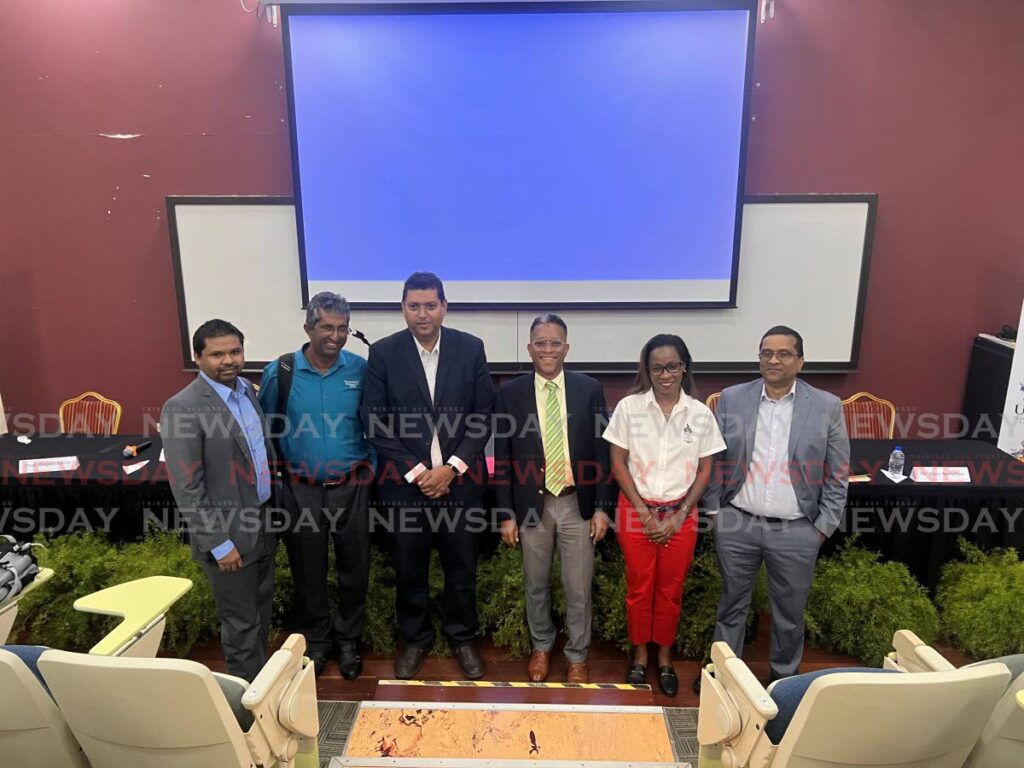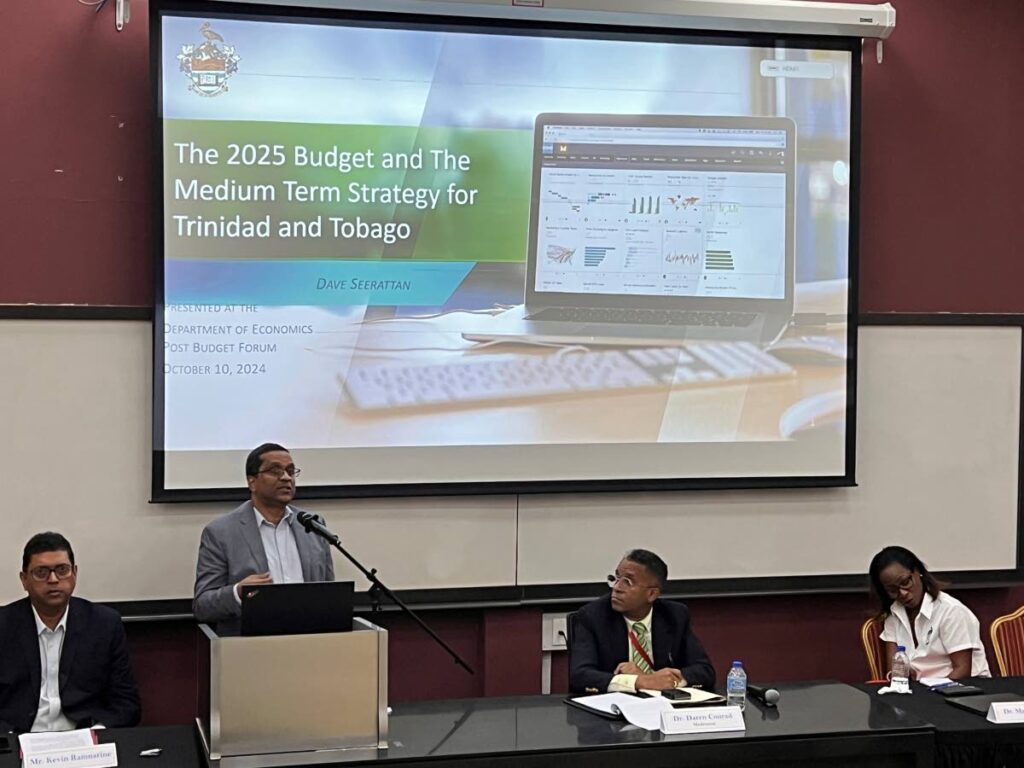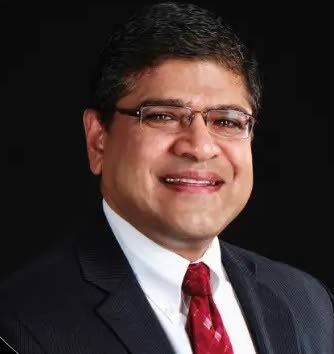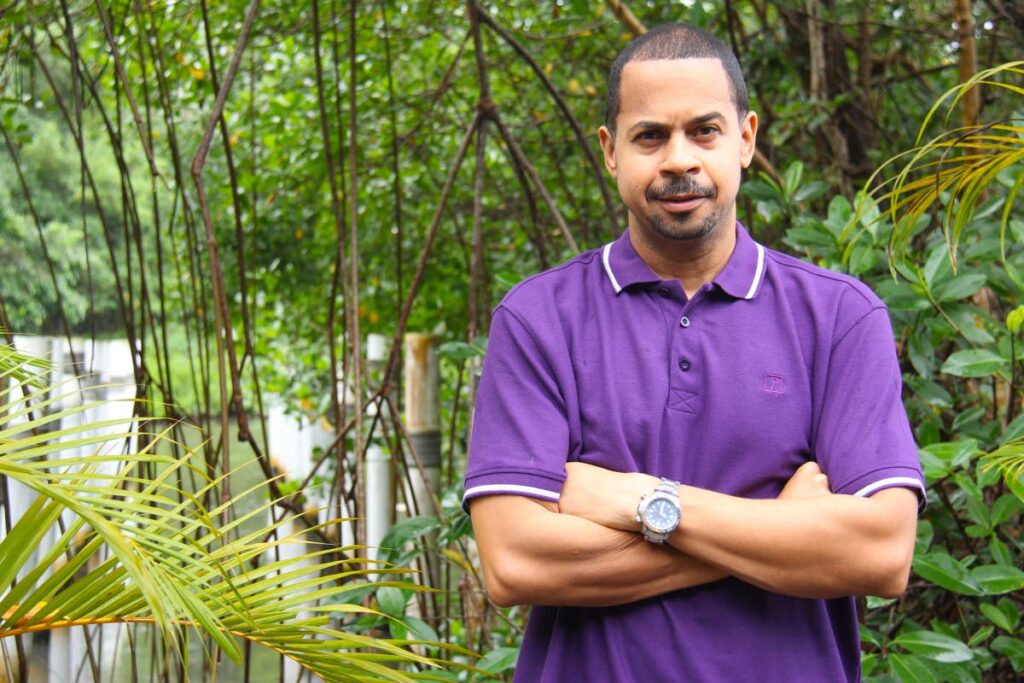Students at UWI post-budget forum anxious amid economic, crime woes
Written by Newsday Reporter on October 17, 2024

Students expressed deep concern about their future amid increasing economic pressures and rising crime rates at the Conference on the Economy (COTE) post-budget forum held on October 10 at UWI’s St Augustine campus.
Panellists economists Marlene Attz and Dave Seerattan, former energy minister Kevin Ramnarine, Prof Roger Hosein and Dr Ricardo Lalloo collectively emphasised,
“The decisions made today will directly affect you and the nation’s trajectory, shaping important conversations about a path forward.”
This statement heightened the anxiety of the audience, who raised concerns about the increasing crime, corruption and their detrimental impact on the economy.
Hosein, professor in the Department of Economics, said, “If you run a correlation between the low labour-force participation rate and the rising murders, you would see a strong correlation.”

From left, Dr Ricardo Lalloo, Prof Roger Hosein, Kevin Ramnarine, Dr Daren Conrad, Dr Marlene Attzs and Dr Dave Seerattan spoke at the Conference on the Economy post-budget forum panel discussion on October 10. – Photo by Sydney Joseph
Eager contributions from students underscored that such a decline in labour-force participation could lead to increased reliance on social services, exacerbating both violent and white-collar crime as people turn to criminal activities for survival or financial gain.
Addressing this challenge, a second-year economics student said the increasing number of migrants entering TT could help fill labour shortages, but such an integration of migrants into the formal economy might present significant challenges.
He said the influx of unskilled workers often fails to address the critical skill gaps necessary for sustainable economic growth.
In another discussion focused on migration, another student raised the issue of brain drain.
Students agreed many skilled citizens are opting to migrate, depleting the local talent pool. This loss of talent negatively affects national development, leaving positions unfilled and creating a workforce that lacks the skills needed for available jobs.
Economist Dave Seerattan said, “Positive externalities of emigration such as remittances and returning visitors during Carnival provide economic benefits, yet the negative impact of brain drain is significant and the country must create more opportunities to retain its youth.”
He added crime remains a major issue affecting not only the tourism sector but also business activities in general. High crime rates deter investors, raise the cost of doing business, and are a negative incentive for both tourists and investors. Despite significant budget allocations for national security across different administrations, crime remains a persistent problem.
The issue is not the lack of resources but rather the inefficiency in deploying them and the need for more effective crime-fighting strategies.
One after another, students voiced their concerns about safety, emphasising the fear gripping the nation. They cautioned that focusing solely on attracting tourists could overlook the rising crime rates, which pose significant threats to diversifying TT’s economic sectors.

Dr Dave Seerattan speaks at the Conference on the Economy post-budget forum panel discussion at the University of the West Indies on October 10. – Photo by Sydney Joseph
One student told the panellists, “People are scared to go to Tobago, which used to be a place where foreigners could walk down the street without fear. As Trinbagonians, if we are afraid to visit our own islands, why should we invest in the tourism sector? It doesn’t make sense.”
This echoed the broader apprehension about the feasibility of attracting tourists when locals themselves feel unsafe. As an economics student, he suggested investing in hotels at this moment is more about hoping for the best, rather than strategically shifting focus toward developing local industries to reduce the country’s reliance on foreign exchange instead of substituting it. He emphasised crime rates not only deter tourists but also affect the country’s ability to attract foreign investors, which the tourism sector heavily relies on.
This raised another critical question about government subsidies and their impact on labour force participation.
Students questioned whether educational subsidies contribute to an educated population that struggles to find employment, subsequently affecting crime rates. They inquired about the country’s ambitious goal of achieving 30 per cent renewable energy by 2030, sharing worries over consistent GDP losses and how the economy could absorb these losses while managing the associated social costs.
Ramnarine said special considerations are needed before altering electricity subsidies, owing to their far-reaching implications. Highlighting that TT’s electricity rates are among the lowest in the Caribbean, he pointed out the potential disruption to the manufacturing sector if subsidies were removed.
Ramnarine said there had been significant shifts in the global energy landscape over the past decade, citing countries like Guyana and Brazil as emerging oil powerhouses.
“Ten years ago, who would have thought that Guyana would have been producing close to 650,000 barrels of oil today?”
Ramnarine warned of challenging revenue forecasts for the next three years, saying maintaining current subsidy levels will be difficult without significant tax-revenue boosts.
The anticipated offshore Manatee gas project operated by Shell is set to start production in 2027, but Ramnarine said benefits may not materialise until 2028, stressing the need for diversification into promising sectors over the next 15-20 years.
Hosein added, “The labour-force participation rate is a problem, not registering Venezuelans is a problem and these are structural problems that will not go away and we have to address them from dawn…but how is all this going to take place when you see murders drifting towards 650, the highest in recorded history?”
Attz said, “Inequalities in economic policies and failing to balance the needs of current and future generations can lead to social disparities and an increase in crime.”
She said TT has a staggering food import bill of approximately $7.3 billion, with up to 80 per cent of food products being imported. She emphasised this scenario calls for a shift in temporary employment strategies toward skills development, as programmes like CEPEP provide only short-term jobs, leaving many workers in low-skill, low-wage positions with limited advancement options, further linking poverty to criminal activity for financial stability as high living costs increase.
– with reporting by Tia-Marie Lander
The post Students at UWI post-budget forum anxious amid economic, crime woes appeared first on Trinidad and Tobago Newsday.




